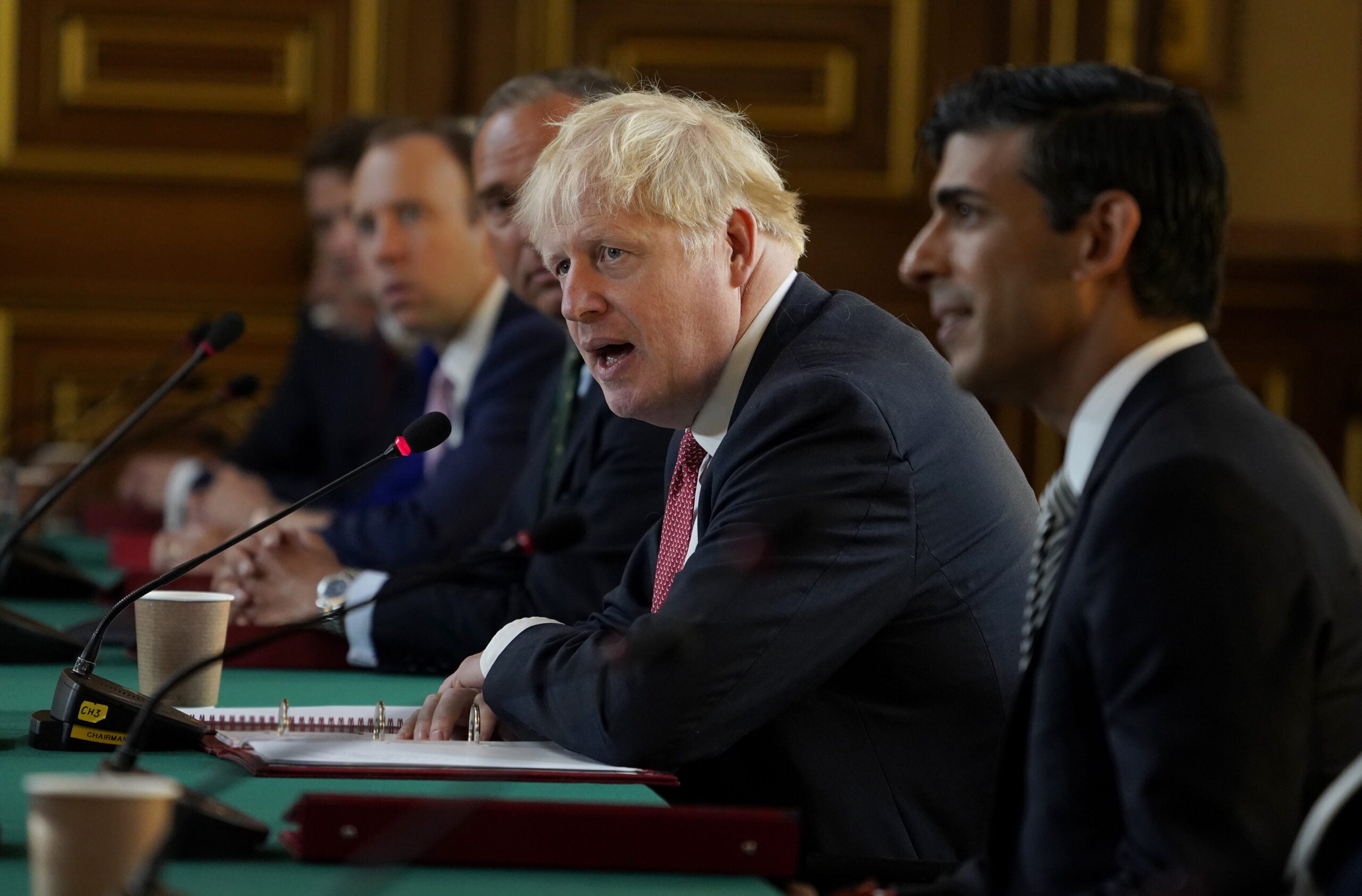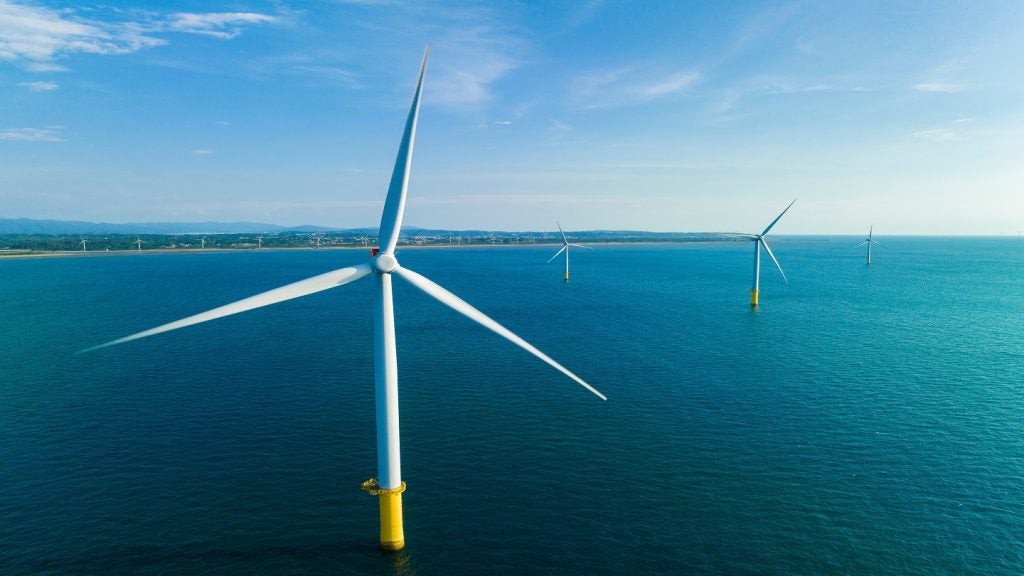
UK prime minister Boris Johnson has announced a 10-point list of priorities for the country’s energy transition. Though several policies were known before the delayed announcement, the full plan gives an outline of measures that the country will take to cut it carbon footprint.
The full list includes funds for carbon capture schemes and cleaner fuels for planes and shipping. The plan would also discourage private car transport while encouraging green finance initiatives from the City of London.
How well do you really know your competitors?
Access the most comprehensive Company Profiles on the market, powered by GlobalData. Save hours of research. Gain competitive edge.

Thank you!
Your download email will arrive shortly
Not ready to buy yet? Download a free sample
We are confident about the unique quality of our Company Profiles. However, we want you to make the most beneficial decision for your business, so we offer a free sample that you can download by submitting the below form
By GlobalDataOpposition politicians from Labour, the Liberal Democrats, and the Green Party have condemned the targets as “deeply, deeply disappointing”, “nowhere near ambitious enough”, and “committing only a fraction of the necessary resources”, respectively.
Electric vehicle transition: no new petrol or diesel cars from 2030
Johnson’s aim to accelerate the UK’s transition to electric vehicles (EVs) attracted significant publicity before its announcement. From 2030, new cars must be electric or hybrid, with hybrid cars phasing out from 2035.
Institute of Civil Engineers director of policy Chris Richards said: “Bringing forward the point at which the sale of petrol and diesel vehicles will be phased out is welcome. Yet, with electric vehicles currently exempt from paying vehicle excise duty, and the impact this will have on fuel duty revenues, there is a need to think carefully about how road upgrades and maintenance will be funded over the long-term.”
CEO of hydrogen technology company Logan Energy Bill Ireland said: “We wonder if the role of clean, green hydrogen is as meaningful as it could – and should – be.
“The push to encourage the widespread adoption of hydrogen needs be supported by sufficient government policy, which is not yet currently in place. As well, the UK Government needs to look at the existing subsidies for oil and gas polluting technologies and refocus them towards hydrogen and other green technologies.”
Founder and CEO of online car sale comparer Carwow James Hind said: “Ten years isn’t an awfully long time in the grand scheme of things, so work to change the perception of Britons must start now. If the groundwork isn’t put in place by the government and automotive industry, it would be no surprise if we saw sales of new cars plummet and second-hand cars rise as motorists cling on to what they know.
“The government would ideally begin its work by investing in the charging infrastructure, which is not currently fit for purpose. Another initiative to encourage a switch is a scrappage scheme.”
Nuclear: $700m (£525m) towards new plants, including small modular reactors
After losing two nuclear projects earlier this year, the government has reaffirmed its commitment to build another large nuclear plant at Sizewell in Suffolk. It has also placed faith in small modular nuclear reactors. These promise significantly lower development costs, but have never seen widespread use.
General union Prospect senior deputy general Sue Ferns said: “The government’s commitment to a green economy is welcome, but this plan is not yet the green jobs revolution we need.
“All of the points in the plan are sensible, especially those on renewables, hydrogen, and nuclear. But they will quickly need both detail and funding to make them into a reality. In particular, the commitment to new nuclear is important, but we still need a clear commitment to building Sizewell C and a whole generation of new plants.”
Chief executive of the Nuclear Industry Association Tom Greatrex said: “The UK Government’s commitment to large, small, and advanced nuclear as part of the future energy mix is an important pointer towards how we will achieve net-zero.
“All zero-emissions technologies will need to play their part for net-zero to become a reality. We welcome the scale of that ambition recognised, with detail to come in the Energy White Paper next week, which will be vitally important. Low-carbon technologies working together – not being pitted against each other – is the right approach to take.
“We welcome the government setting a 2030 target for low-carbon hydrogen production. Nuclear power can produce clean, ‘green’ hydrogen without any carbon emissions, so it has a critical role to play in developing the hydrogen economy. We hope the government will support ‘green’ hydrogen, since our goal is to use hydrogen to reduce emissions. There is no use in deploying hydrogen if we have to emit large amount of carbon to create it.”
Hydrogen: Production boost and hydrogen-heated model town
Without setting any firm numerical target, Johnson promised to scale up the UK hydrogen industry. He also set aims to create a new town powered entirely by hydrogen, as the UK phases out new gas-heated builds by 2030.
French rail giant Alstom has developed hydrogen-powered trains for lines that cannot be electrified. Alstom UK and Ireland’s managing director Nick Crossfield said: “The Prime Minister has rightly highlighted hydrogen transport as a key part of his plan for green jobs. Our hydrogen-powered trains are shovel-ready, and if the government orders a fleet now, we can create hundreds of new jobs across the north of the country.”
Chair of the UK Hydrogen & Fuel Cell Association, and CEO of green hydrogen developer Protium, Chris Jackson said: “It is essential that the UK capitalises on its rich expertise and heritage in the production, storage, and use of hydrogen, especially for hydrogen in the heating sector and for transportation.
“It is crucial, however, that the government ensures green hydrogen, and notably electrolysis, is front and centre of the hydrogen sector. The ability to use sun, wind, and water to decarbonise the UK energy sector is one of the most tangible examples of how science and innovation can overcome some of the greatest challenges we face.”
Wind: Increasing generation to 40GW, a four-times increase
Johnson also recapped his previous announcement of extra funds for offshore wind development. He previously said he wanted the UK to become “a world leader in low-cost power generation” with offshore wind, pledging $208m (£160m) to make it happen.
Legal firm Norton Rose Fulbright’s partner and co-chair of renewable energy practice Rob Marsh said: “These targets are ambitious and there is now a long road ahead with lots of work to do. Large amounts of funding, predominantly from the private sector, will be needed to realise and finance significant development of projects and deployment of infrastructure on the scale envisaged. Some initial reactions are already pointing to insufficient financial support from government.
“To achieve this, the mantra “subsidy-free does not mean policy-free” will remain important. There is much the government can do in terms of setting a positive regulatory framework and easing planning and consenting obstacles to further enable this direction of travel.”
Workforce provider Airswift chief operations director James Allen said: “We must not forget the North Sea oil and gas sector. This industry already has people, skills, and expertise that can be a launchpad for advancing areas like offshore wind and CCS.”








